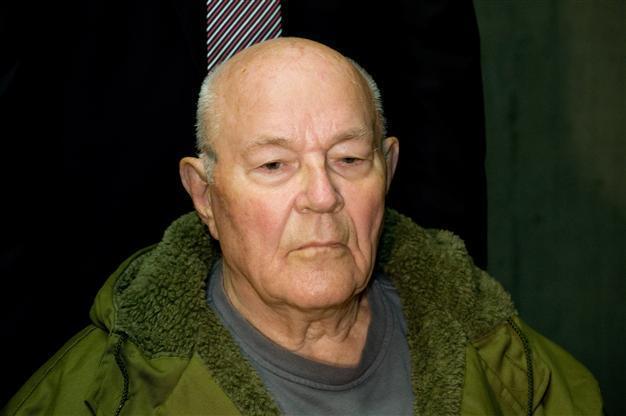German prosecutors probe Nazi guard 'execution' charge
BERLIN - Agence France-Presse

In this May 12, 2011 file picture John Demjanjuk leaves the court room, in Munich, southern Germany. AP photo
German prosecutors said Thursday they were investigating allegations by the family of convicted Nazi guard John Demjanjuk that doctors had performed a "medical execution" on him at a nursing home.
Juergen Branz, a prosecutor in Rosenheim near the southern city of Munich, told AFP they had received a formal complaint via Demjanjuk's lawyers.
"In these allegations, the suspicion is laid out that John Demjanjuk died due to medical maltreatment. The charges are being looked into," said Branz.
Demjanjuk's son, John Jr, said Wednesday that his father had been given a high dose of a pain killer banned in the US and which the German manufacturer says should not to be given to patients with his bone marrow condition." "We believe this led to his death and any foul play should be investigated," Demjanjuk Jr said in a statement.
The accusation follows decades of legal battles in which Demjanjuk and his family insisted he was a victim of mistaken identity who became a scapegoat because he shared a name with the notorious "Ivan the Terrible." Demjanjuk died in March aged 91 awaiting another appeal after being convicted a year ago of helping to herd more than 27,000 men, women and children into gas chambers in what was billed as one of Germany's last major war crimes trials.
An autopsy gave no clear indication of the exact cause of death but also found no sign that anyone else was involved, a spokesman for the local public prosecutor's office said after Demjanjuk's death.
A German court in May last year sentenced the Ukrainian-born man to five years in prison in connection with the six-month period he was a guard in Poland at the Sobibor death camp in 1943.
Demjanjuk vigorously denied the charges and appealed his conviction, arguing throughout the proceedings that he had been a victim of the Nazis who captured him as a prisoner of war.
He was released from jail pending an appeal, having already spent nearly two years in prison, as he was deemed unlikely to abscond.
